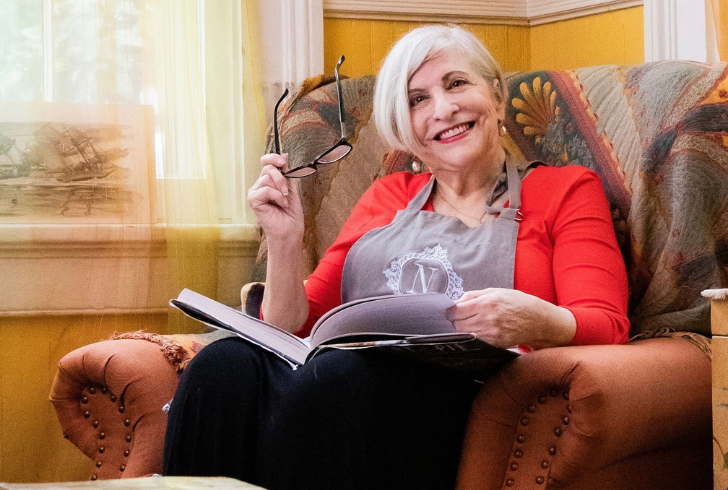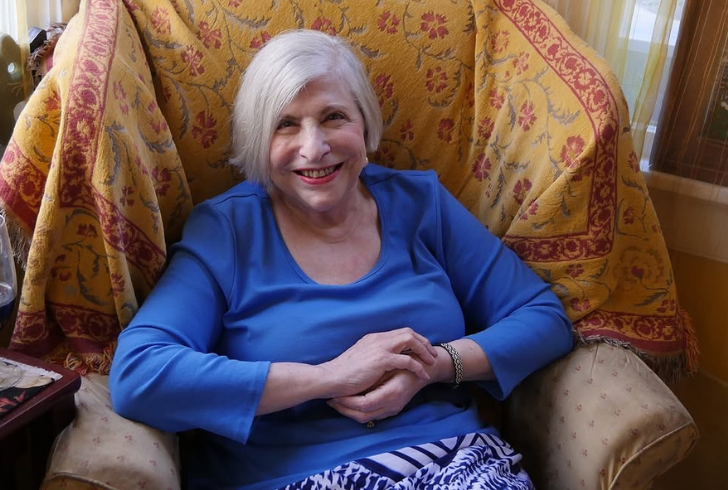Inside the Bold Career of Nathalie Dupree, the Pioneer of Southern Food
Nathalie Dupree didn’t simply cook Southern food—she redefined how the rest of the country understood it. Over the course of fifty years, she built something more enduring than a career: a movement. In her kitchens, home-style comfort met classical finesse, mentorship wasn’t a buzzword but a daily practice, and women were not just welcomed—they were expected to lead.
Her legacy isn’t tucked away in textbooks. It’s alive in the way Southern food is plated today and in the quiet confidence of countless chefs she mentored, coached, and challenged to think bigger.
The Start of a Culinary Shift
Back in the mid-’80s, long before “farm-to-table” made its way onto restaurant chalkboards, Nathalie was already there—cooking with what was fresh, what was regional, and what mattered. She brought a French-influenced precision to Southern classics, layering old flavors with new perspective. Pork with muscadine jelly, shrimp and grits with elegant restraint—her food didn’t shout, it spoke clearly.
But the real revolution happened in the culture of her kitchen. It was never just about technique. It was a place where ideas simmered alongside gumbo, and where tradition wasn’t a limitation—it was the starting point.

Instagram | thelocalpalate | Nathalie artfully combined Southern ingredients and European techniques, transforming local dishes.
Her name may not always be listed alongside Julia Child or Jacques Pépin, but Nathalie stood shoulder-to-shoulder with culinary icons. She authored 15 cookbooks, racked up three James Beard Foundation Media Awards, and sold nearly a million copies of her work. Television gave her a broader reach, with more than 300 episodes aired on PBS, The Food Network, and The Learning Channel.
In 2013, when she took home the James Beard Award for Mastering the Art of Southern Cooking, she called Southern cuisine the “Mother Cuisine of America.” And few had the credibility to say it the way Nathalie could.
A Fierce Mentor and Advocate for Women
Mentorship wasn’t something Nathalie did on the side—it was baked into everything she touched. The cooks she guided—her “chickens,” as she fondly called them—got far more than just tips on how to sear a roast or thicken a sauce. She challenged them on things most chefs wouldn’t dare bring up: money, career direction, knowing when to speak up in rooms that weren’t built to hear women.
She didn’t sugarcoat anything. Her questions could be uncomfortable, her standards unflinchingly high. But that’s what made her lessons stick. They weren’t just about surviving in the kitchen but about learning how to take up space in it.
Many now-recognized names in the food world started under her watch: Virginia Willis, Rebecca Lang, Toni Tipton-Martin, and Anne Quatrano among them. Her own Atlanta home kitchen became a hub of learning, filled with interns, ingredients, and advice given over the clatter of pans.
Breaking Norms From the Beginning
Nathalie’s journey didn’t follow a straight line. She grew up in Virginia, navigating a tough home life and plenty of uncertainty about what her future might look like. Cooking, in her mother’s eyes, wasn’t a serious profession—certainly not one fit for a woman. Still, there was one caveat: if Nathalie could point to a woman making an honest living from the kitchen, she’d have her mother’s blessing.
That challenge lit a spark. It wasn’t just about proving a point—it was the start of something bigger.
That moment came during her time at Le Cordon Bleu in London, when Julia Child made an appearance. Child’s advice was simple—start a school, write a cookbook. So, Nathalie did both.
After graduating, she opened a restaurant in Majorca, Spain, and returned to the U.S. in the early ’70s to launch her own dining space just outside Atlanta. Her cuisine mixed Southern ingredients with French technique, making it a destination spot well before fusion food was in fashion.
Shaping Institutions and Building Communities
Throughout her career, Nathalie had a knack for building networks that lasted. She co-founded the International Association of Cooking Professionals (IACP) in 1978 with support from friends like Julia Child. It became a go-to space for culinary collaboration and continues to thrive.

Instagram | heidibillotto | In 1978, Nathalie co-founded the IACP, backed by friends including Julia Child.
She also helped launch and lead organizations that celebrated Southern food culture and supported women in the industry:
1. Southern Foodways Alliance: where she received the Craig Claiborne Lifetime Achievement Award.
2. Les Dames d’Escoffier International (LDEI): where she was honored with the Grand Dame award for her lifelong dedication.
3. Charleston Wine + Food Festival: She was a founding board member and helped spotlight Charleston’s evolving food scene.
From establishing cooking schools to influencing food policy conversations, Nathalie made sure the industry recognized the power and presence of women in food.
Teaching With Heart and Hands
Though she taught advanced culinary skills, Nathalie never lost her connection to home cooking. Her lessons on biscuits became legendary, especially while promoting her cookbook Southern Biscuits. She demystified technique, taught people how to read their dough, and made sure every class felt confident walking into their own kitchens.
One of her most powerful life philosophies came from what she called the Pork Chop Theory: a single pork chop in a pan dries out, but two nourish each other. It’s how she lived—lifting others while pushing forward herself.
A Legacy Etched in Generosity and Grit
Nathalie’s story isn’t just a string of accolades—it’s part of the scaffolding that helped lift women higher in the food world. Her impact still lingers, not just in cookbooks or restaurant menus, but in the confidence of those who came up under her wing.
Her influence shows up quietly—in the way someone leads a kitchen, writes a recipe, or refuses to shrink themselves at the stove. Nathalie didn’t just break through barriers—she made sure others could walk through behind her.
The culinary world is richer because of her, and her story remains one worth telling over and over again.